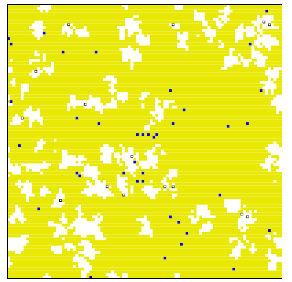Impact of aging on the evolution of cooperation in the spatial prisoner's dilemma game
Attila Szolnoki, Matjaz Perc, Gyoergy Szabo and Hans Ulrich Stark
Physical Review E (2009)
Research: Reputation Trust Cooperation
Abstract
Aging is always present, tailoring our interactions with others, and postulating a finite lifespan during which we are able to exercise them. We consider the prisoner’s dilemma game on a square lattice and examine how quenched age distributions and different aging protocols influence the evolution of cooperation when taking the life experience and knowledge accumulation into account as time passes. In agreement with previous studies, we find that a quenched assignment of age to players, introducing heterogeneity to the game, substantially promotes cooperative behavior. Introduction of aging and subsequent death as a coevolutionary process may act detrimental on cooperation but enhances it efficiently if the offspring of individuals that have successfully passed their strategy is considered newborn. We study resulting age distributions of players and show that the heterogeneity is vital—yet insufficient—for explaining the observed differences in cooperator abundance on the spatial grid. The unexpected increment of cooperation levels can be explained by a dynamical effect that has a highly selective impact on the propagation of cooperator and defector states.

